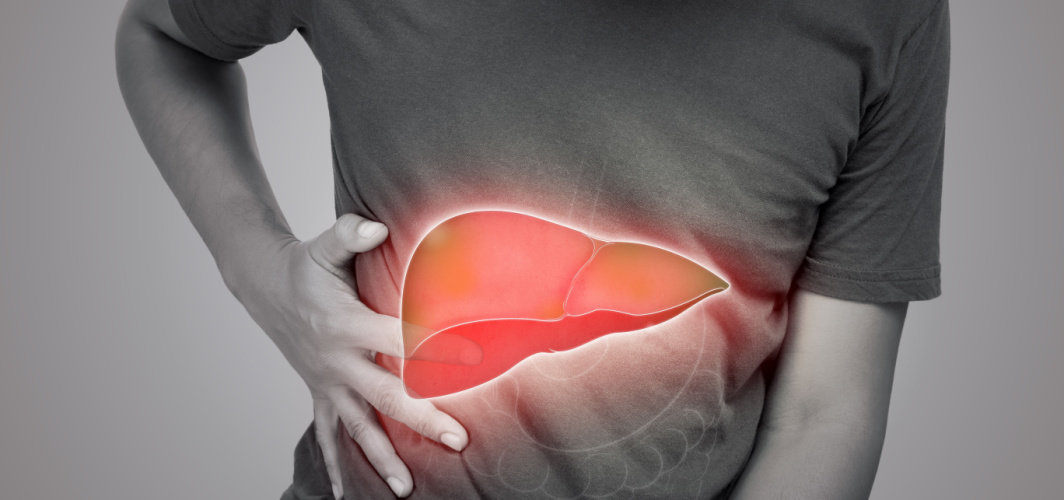- Home
- Blog
- General Health
Can Low Vitamin D Levels Cause Skin Problems?
General Health
Can Low Vitamin D Levels Cause Skin Problems?
By Apollo Pharmacy, Published on- 13 March 2024, Updated on -07 May 2024
Share this article
0
5 likes

Vitamin D, often referred to as the 'sunshine vitamin', contributes significantly to our overall health. It is produced naturally in our bodies when our skin is exposed to sunlight. Additionally, we can obtain vitamin D from certain dietary sources and supplements. This vitamin plays a crucial role in the absorption of calcium and the maintenance of healthy bones and teeth. However, does a deficiency of vitamin D lead to skin problems? This blog will explore the connection between low vitamin D levels and potential skin issues, discuss the symptoms of vitamin D deficiency, ways to increase it through diet and supplements, and the importance of a vitamin D test.
All About Vitamin D
In the following subsections, we will discuss in detail the importance of vitamin D in our body along with its daily requirement value.
1. Why is Vitamin D Important?
Vitamin D plays a pivotal role in our body. Some of its functions include:
- Vitamin D regulates calcium and phosphorus, the minerals necessary for the upkeep of healthy bones, teeth, and muscles.
- It aids in reducing inflammation and infections.
- It also controls processes such as cell growth, neuromuscular function, and immune function.
There's ongoing research into the wider benefits of vitamin D, including its potential role in reducing risks from diseases such as cancer and cardiovascular disease.
2. How Much Vitamin D Do You Need?
The recommended daily intake varies by age, but most adults require between 600 and 800 IU (15-20 mcg). The requirement usually increases during pregnancy or/and deficiency. The bulk of the vitamin D you need can be synthesised from sunlight exposure on your skin. However, relying on dietary sources or vitamin D supplements might be necessary at times.
The following are some of the vitamin-D-rich foods that you can include in your diet:
- Oily fish
- Red meat
- Liver
- Egg yolks
- Fortified foods
If these foods don't regularly feature in your diet or if you have limited exposure to sunlight, a vitamin D supplement might be beneficial.
Note: An excessive intake can lead to vitamin D toxicity. Hence, it is important to adhere to recommended dosages and consider a vitamin D test if you're uncertain about your levels.
Signs of Vitamin D Deficiency
Vitamin D deficiency is one of the most common deficiencies among Indians. For children, severe vitamin D deficiency can lead to rickets, which is characterised by:
- Bowed or bent bones indicating abnormal growth patterns
- Muscle weakness
- Bone pain
- Joint deformities
In adults, signs of vitamin D deficiency are less noticeable and might not be immediately apparent. You may, however, experience:
- Fatigue
- Bone pain
- Muscle weakness, aches, or cramps
- Mood changes
- Anxiety or depression
The presence of these signs does not confirm the diagnosis of vitamin D deficiency. You may need further testing to confirm the diagnosis.
You can monitor your vitamin D levels through a simple blood test called the vitamin D test. If results indicate a deficiency, consult a doctor for further course of action. The doctor may advocate the inclusion of vitamin D-rich foods or vitamin D supplements to manage the deficiency.
How Low Vitamin D Levels Affect Your Skin?
Vitamin D is a secosteroid, produced when sunlight strikes the skin. It controls several physiological functions in the skin such as cellular proliferation, differentiation, apoptosis, maintaining the skin's barrier, and immune functionality. Statistics suggest that a majority of the Indian population suffers from vitamin D deficiency, which often presents itself in the form of skin conditions. Inflammatory skin disorders like acne, psoriasis and atopic dermatitis are often seen in individuals with low vitamin D levels.
Let us elaborate on these skin conditions:
1. Acne
It is a common skin condition that occurs when the pores in the skin get clogged with dead skin cells, dirt, and oil particles. Research has shown that people with acne are more likely to have vitamin D deficiency than those without acne.
2. Psoriasis
It is a chronic disorder where the immune system attacks healthy skin cells. The disease is characterised by the appearance of itchy, red patches on the skin. Researchers have found that individuals with psoriasis often have low vitamin D levels.
3. Eczema
Also called atopic dermatitis, eczema is another chronic skin condition that causes itchy, flaky skin. Low vitamin D levels in affected patients are often associated with aggravated symptoms of eczema.
Furthermore, numerous clinical and observational studies have noticed an improvement in these conditions with vitamin D supplementation. Here's why:
- Vitamin D supplements can reduce inflammation: Inflammation is a common characteristic of both psoriasis and atopic dermatitis. Vitamin D has anti-inflammatory properties that can help alleviate these symptoms.
- Vitamin D aids in skin cell growth: This could be beneficial for people with psoriasis as it can help slow down the rapid growth and build-up of skin cells.
- Vitamin D improves immune system function: This can be particularly beneficial for those with atopic dermatitis, as this condition often flares up when the immune system overreacts to irritants or allergens.
While there is a correlation between these skin conditions and low vitamin D levels, more research is needed to establish a direct causal relationship.
Addressing Vitamin D Deficiency for Better Skin Health
To identify vitamin D deficiency, you would require vitamin D test. If found deficient, include more vitamin D foods such as fatty fish and fortified dairy products in your diet or consider taking a vitamin D supplement under medical supervision.
To prevent vitamin D deficiency and to ensure optimal levels of this nutrient in your body, you may make certain lifestyle modifications, such as consuming vitamin D-rich foods and getting moderate sun exposure. Food sources that are rich in vitamin D include:
- Fatty fish (salmon, tuna, mackerel, and sardines)
- Beef liver
- Egg yolks
- Rainbow trout
- Mushrooms
- Cod liver oil
- Fortified foods like cow’s milk and plant-based alternatives (soy, almond, and oat milk), breakfast cereals, orange juice, and yoghurt
In addition to dietary changes, you may consider taking a vitamin D supplement if your vitamin D test results indicate low levels. However, always consult with a doctor before starting any new supplement regimen. They can provide personalised advice on how to increase vitamin D levels safely and effectively based on your specific needs and circumstances.
Can Sun Exposure Improve Skin Health?
When it comes to skin health, sunlight plays a double-edged sword. The sun is a natural source of vitamin D, which is crucial for skin health. Yet, excessive sun exposure can lead to skin damage. Striking a balance is the key. Short, regular exposure to the sun for 15 minutes to a couple of hours can help your body produce the necessary vitamin D. However, it's important to note that prolonged exposure can heighten the risk of skin conditions such as sunburn and skin cancer. Using sunscreen is vital to protect your skin while still benefiting from the production of vitamin D.
Conclusion
Vitamin D deficiency can indeed lead to skin problems. Therefore, it's important to maintain sufficient levels through exposure to sunlight, eating vitamin D-rich foods, undergoing regular vitamin D tests, and taking supplements if necessary.
Services
General Health
Frequently asked questions
Yes, low vitamin D levels can exacerbate pre-existing skin conditions. Studies have shown that people with acne, psoriasis, and eczema often have lower levels of vitamin D.
People with darker skin have higher levels of melanin, which can reduce the skin's ability to produce vitamin D from sunlight. Therefore, they may be more prone to vitamin D deficiency.
A vitamin D test, also known as a 25-hydroxyvitamin D blood test, requires a blood sample to measure the amount of the vitamin in your body.
Eating vitamin D-rich foods alone may not clear your skin issues but it will strengthen your immune system, promoting overall skin health.
Supplements can help increase your vitamin D levels but should be used under medical advice. They are a part of the solution but may not fully reverse the condition.
Leave Comment
Services
Recommended for you
_9.jpg?tr=q-85)
General Health
My baby girl has a cough for the past 5-6 days. 4 days back a doctor 4 days gave cefpodoxime oral suspension IP but the condition has not improved. The doctor then gave a 5-day course of injection. traxol 250 mg. Please guide what to do.

General Health
Beauty Gummies: How Do They Work?
Curious about how beauty gummies work? Discover the science behind these tasty supplements and how they help improve your skin, hair, and nail health from within.

General Health
Fatty Liver: Symptoms, Causes, Prevention, and Treatment
Fatty liver is caused by the accumulation of fat in the liver. A person with fatty liver may suffer fatigue, abdominal pain or discomfort, or weakness. Notably, the common causes of fatty liver are excessive alcohol consumption and non-alcoholic factors like obesity and diabetes. Its prevention and management involve adopting a healthy lifestyle.
Subscribe
Sign up for our free Health Library Daily Newsletter
Get doctor-approved health tips, news, and more.

